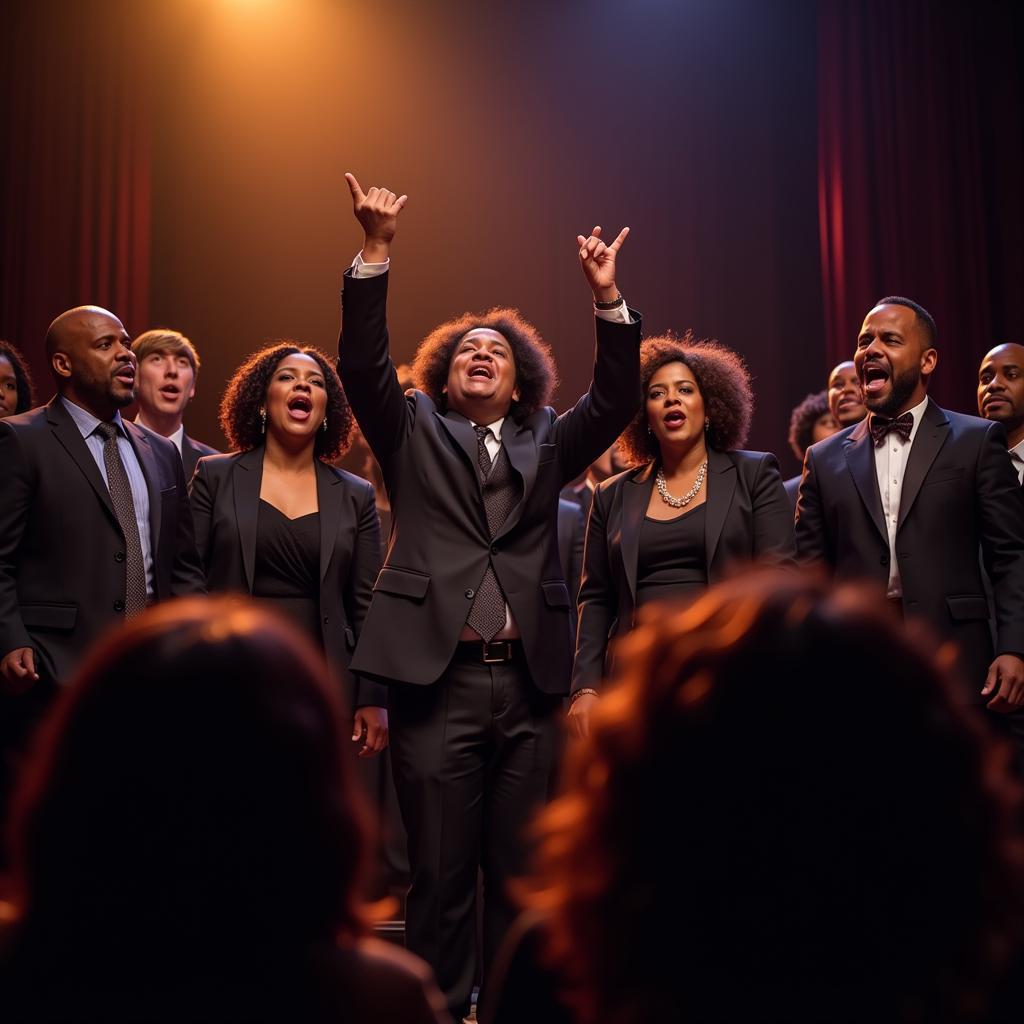African American Religious History: A Journey of Faith and Resilience
African American Religious History is deeply intertwined with the African American experience. From the shores of West Africa, where diverse spiritual traditions thrived, to the forced migration through the transatlantic slave trade, and the long struggle for freedom and equality in the United States, faith has played a central role in shaping the identity, culture, and social movements of African Americans.
The Transatlantic Slave Trade and the Suppression of Indigenous Faiths
The transatlantic slave trade had a profound impact on the religious landscape of the Americas. Enslaved Africans brought with them a rich tapestry of indigenous beliefs and practices, often rooted in ancestor veneration, nature worship, and a holistic understanding of the cosmos. However, these traditions were systematically suppressed by slaveholders who sought to control and dehumanize their captives.
The enforcement of Christianity, often presented as a tool of domination and a justification for slavery, forced many Africans to practice their beliefs in secret, blending elements of their indigenous faiths with the imposed religion. This syncretism led to the emergence of unique Afro-Christian traditions that incorporated African rituals, music, and spiritual concepts.
The Rise of Black Churches and the Fight for Liberation
The late 18th and 19th centuries witnessed the rise of independent Black churches, institutions that would become cornerstones of African American life. These churches, often established in defiance of segregation and discrimination, provided not only spiritual solace but also served as centers for community organizing, education, and political activism.
Black preachers, often seen as leaders and voices of the oppressed, played pivotal roles in the abolitionist movement and the fight for civil rights. Figures like Nat Turner, Harriet Tubman, and Sojourner Truth drew inspiration from their faith to challenge the institution of slavery and advocate for racial justice.
African American Religious Traditions: From Spirituals to Islam
The African American religious landscape is characterized by a vibrant diversity of faiths and denominations. Alongside various Christian denominations, including Baptists, Methodists, and Pentecostals, Islam has also found a significant following among African Americans. The Nation of Islam, founded in the 1930s, offered a message of Black empowerment and self-reliance, attracting those who felt marginalized by mainstream American society.
Music has always been integral to African American religious expression. Spirituals, born out of the crucible of slavery, served as coded messages of hope and resistance. These soulful melodies, infused with biblical imagery and African musical traditions, continue to resonate deeply within African American communities and beyond, offering a testament to the enduring power of faith and the human spirit.
 African American Gospel Choir Performance
African American Gospel Choir Performance
The Legacy of Faith and the Ongoing Quest for Social Justice
African American religious history is not merely a historical narrative but a living legacy that continues to shape the present and future. The Black church remains a powerful force in advocating for social justice, addressing issues such as mass incarceration, economic inequality, and voting rights.
The enduring impact of figures like Martin Luther King Jr., a Baptist minister who became an icon of the civil rights movement, highlights the deep connection between faith and the pursuit of equality. King’s message of nonviolent resistance, rooted in Christian principles of love and forgiveness, inspired millions and helped bring about significant social and political change.
Conclusion
From the resilience of enslaved Africans who clung to their spiritual roots to the courageous leaders who fought for freedom and equality, African American religious history is a testament to the enduring power of faith in the face of adversity. Understanding this rich and complex history is crucial for comprehending the cultural, social, and political landscape of the United States and appreciating the ongoing struggle for racial justice and spiritual liberation.
FAQs
1. What is the significance of the Black church in African American history?
The Black church has historically served as a pillar of the African American community, providing not only spiritual guidance but also acting as a center for education, social activism, and political organizing.
2. How did slavery impact African religious practices in America?
Slavery led to the suppression of indigenous African faiths, forcing many enslaved Africans to practice their beliefs in secret or blend them with Christianity, resulting in unique syncretic traditions.
3. What role did music play in African American religious expression?
Music, particularly spirituals, served as a powerful outlet for expressing faith, hope, and resistance during slavery. These soulful melodies continue to resonate within African American religious traditions today.
4. How has Islam influenced African American communities?
Islam, particularly through the Nation of Islam, offered a message of Black empowerment and self-reliance, attracting those seeking alternatives to mainstream American society and religion.
5. How is African American religious history relevant today?
The legacy of faith and social activism within African American communities continues to inspire contemporary movements for racial justice, economic equality, and social change.
